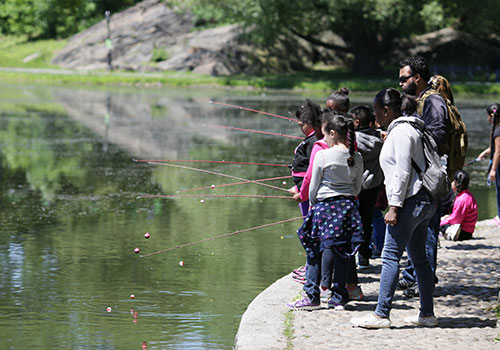 College students can experience a great deal of stress when trying to keep up with their schoolwork and other commitments. But a recent study suggests that taking some time away to reconnect with nature can go a long way towards relieving anxiety.
College students can experience a great deal of stress when trying to keep up with their schoolwork and other commitments. But a recent study suggests that taking some time away to reconnect with nature can go a long way towards relieving anxiety.
Researchers from Cornell University conducted a study which found that spending as little as 10 minutes out in nature can make students happier and alleviate physical and mental stress reports Consumer Affairs.
“It doesn’t take much time for the positive benefits to kick in — we’re talking 10 minutes outside in a space with nature,” said lead author Gen Meredith. “We firmly believe that every student, no matter what subject or how high their workload, has that much discretionary time each day, or at least a few times per week.”
Short stretches in nature do the trick
The researchers came to their conclusions after reviewing previous research on the effects of nature on college students. Through their analysis, they determined that spending 10-50 minutes out in natural spaces improved students’ moods, helped them regain focus, and benefitted certain physical markers like blood pressure and heart rate.
The team notes that shorter stints in nature provided the best benefits and are more achievable for students running on a busy schedule.
“We wanted to keep this access to nature as simple and achievable as possible. While there is a lot of literature on longer outdoor programs, we wanted to quantify doses in minutes, not days,” said study co-author Donald Rakow. “It’s not that there’s a decline after 50 minutes, but rather that the physiological and self-reported psychological benefits tend to plateau after that.”
Prescription for nature?
The study findings give credence to the researchers’ belief that time in nature could eventually be prescribed by doctors as a treatment for stress.
“Prescribing a dose can legitimize the physician’s recommendation and give a tangible goal. It’s different than just saying: ‘Go outside.’ There is something specific that a student can aim for,” said Meredith. “This is an opportunity to challenge our thinking around what nature can be. It is really all around us: trees, a planter with flowers, a grassy quad or a wooded area.”
The full study has been published in the journal Frontiers in Psychology.
Become a Harlem Insider!
By submitting this form, you are consenting to receive marketing emails from: Harlem World Magazine, 2521 1/2 west 42nd street, Los Angeles, CA, 90008, https://www.harlemworldmagazine.com. You can revoke your consent to receive emails at any time by using the SafeUnsubscribe® link, found at the bottom of every email. Emails are serviced by Constant Contact








